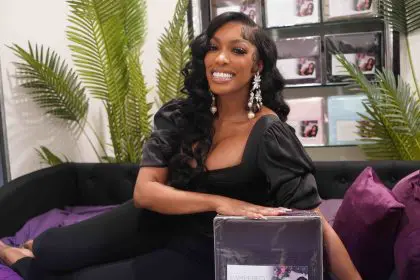So your partner just dropped the P-bomb – they want to try polyamory. Meanwhile, you’re perfectly happy keeping things between just the two of you. Before you start panic-scrolling through relationship advice or booking a U-Haul, let’s talk about what it really means when one partner wants to open up the relationship while the other wants to keep it closed.
What’s actually going on with polyamory right now
Turn on Netflix or scroll through TikTok, and you’ll probably spot someone talking about their polyamorous journey. From Bridgerton’s steamy storylines to real-life couples documenting their experiences on reality TV, polyamory is having a major cultural moment. But this isn’t just about trending hashtags – it’s sparking real conversations in bedrooms across the country.
When one partner wants to explore and the other doesn’t
Here’s the thing about relationships, they get complicated when partners want different things. When one person expresses interest in polyamory while the other prefers monogamy, it can feel like hitting a relationship dead end. But before you call it quits, there’s something you should know – these relationships, called mono-poly relationships, can actually work. The catch? They need way more communication and effort than your average setup.
The not-so-simple art of making it work
Making a mono-poly relationship work is kind of like being a relationship ninja. You need sharp communication skills, ninja-level emotional awareness, and the patience of a saint. Both partners need to be ready to have some seriously uncomfortable conversations about jealousy, insecurity, and what love means to them.
For the monogamous partner, it means dealing with the reality that their partner may form meaningful connections with others. For the poly partner, it means being extra mindful of their mono partner’s feelings and boundaries. It’s not easy, but many couples find ways to make it work through open communication and mutual respect.
The emotional rollercoaster no one talks about
Let’s get real about the feelings involved. The monogamous partner might struggle with jealousy, fear, and wondering if they’re “enough.” Meanwhile, the poly partner might feel guilty about their desires or frustrated by limitations. These feelings are totally normal, but they need to be addressed openly and honestly.
The key is creating a safe space where both partners can express their feelings without judgment. Regular check-ins become crucial – think of them as emotional maintenance to keep your relationship running smoothly.
When it’s time to hit the brakes
Sometimes, despite all the communication and effort, mono-poly relationships just don’t work out. If you’re feeling constantly anxious, pressured, or resentful, it might be time to reevaluate. Remember, it’s okay to have deal-breakers in relationships, and differing views on monogamy versus polyamory can absolutely be one of them.
Pay attention to red flags like feeling pressured to change your relationship style, consistently broken boundaries, or growing resentment. These are signs that the current arrangement might not be sustainable for either partner.
A word about societal pressure
In 2024, there’s definitely more acceptance around different relationship styles, but that doesn’t mean you have to try polyamory just because it seems trendy. Your relationship preferences are valid, whether you’re drawn to monogamy, polyamory, or something in between.
It’s worth noting that different communities approach this conversation differently. Some queer communities have long embraced relationship diversity, while some communities of color are reconnecting with historical polyamorous practices as part of cultural reclamation.
The future of relationships might be more flexible than we think
As society becomes more accepting of different relationship styles, we’re seeing more conversations about what makes relationships work. Whether you’re monogamous, polyamorous, or somewhere in between, the most important thing is being honest with yourself and your partner about what you want and need.
Professional support can be super helpful in navigating these waters. Couples therapists who understand both monogamy and polyamory can provide valuable tools for communication and boundary-setting. They can also help you figure out if a mono-poly relationship is right for you.
The bottom line on mixing relationship styles
Here’s the truth, there’s no one-size-fits-all answer to whether mono-poly relationships work. Success depends on both partners’ willingness to communicate, compromise, and respect each other’s boundaries. Sometimes it works beautifully, and sometimes it reveals fundamental incompatibilities, and both outcomes are okay.
What matters most is staying true to yourself while treating your partner with respect and empathy. Whether you decide to explore a mono-poly dynamic or realize it’s not for you, being honest about your needs and boundaries is crucial for building healthy relationships.
Remember, you’re not alone in navigating these complex waters. As relationships continue to evolve, more resources and support become available for couples exploring different relationship styles. The key is finding what works for you, even if it doesn’t look like anyone else’s relationship.












